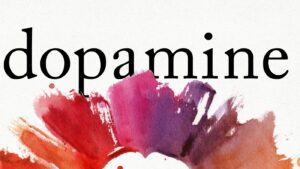All Articles
A Welcome Change: Mental Health Issues Lose Their Stigma at Every Age
From unmentionable to oft discussed, American attitudes toward mental health have made a seismic shift over the years. It’s heartening to see recent polls showing 87% of U.S. adults agree…
Mental Health in Children
Age of Innocence – Or Anxiety for Today’s Kids? From loud claps of thunder to dogs that can bite, a child’s world is filled with new, sometimes scary experiences. However,…
Mental Health in Adolescent & Young Adults
Drugs, Drinking & Depression: The Kids May Not Be Alright Every generation has seen their share of thrill-seeking teens acting out and making dubious choices regarding drugs and alcohol. “There’s…
Teens & Social Media
In Real Life (IRL), Can We Protect Teens from the Emotional Impact of Social Media? YouTube, TikTok, Snapchat, Instagram, Facebook, WhatsApp, X, Reddit, BeReal. A majority of American teens visit…
How Not to Age: A Scientific Approach to Getting Healthier as You Get Older
It’s not yet possible to stop the passage of years, but it might well be within our sights to combat the effects of aging, according to Michael Greger, MD, internationally…
Dopamine Nation: Finding Balance in a World of Excess
It’s called the Plenty Paradox: an affluent environment with easy access to substances or behaviors perceived as pleasurable has actually been a key contributor to our national mental health crisis.…
Sustainable Eating: The Planetary Healthy Diet
The Lancet Planetary Health Diet Is there a way to eat that not only reduces the risk of disease and promotes well-being, but is also sustainable? Could a certain diet…
Every Walk is a Step in the Right Direction
“If you are in a bad mood, go for a walk. If you are still in a bad mood, go for another walk.” – Socrates No one has a negative…
AI in Healthcare: An Early Look at the Power, Promise and Peril of Tech’s Latest Tool
Whether you are an enthusiastic adopter of virtual assistants like Alexa and Siri, and apps to monitor everything from glucose to sleep patterns— or consider them error-prone and intrusive—it’s impossible…
A New Era for Diabetes and Weight Loss Drugs
For patients seeking new solutions to managing type 2 diabetes and obesity, the introduction of a class of drugs called GLP-1 receptor agonists (RA) has simultaneously inspired hope and excitement…













